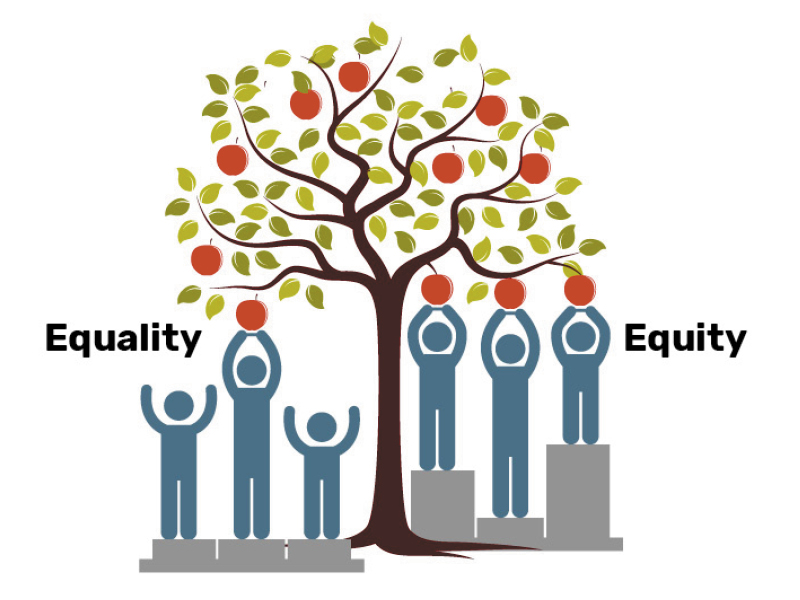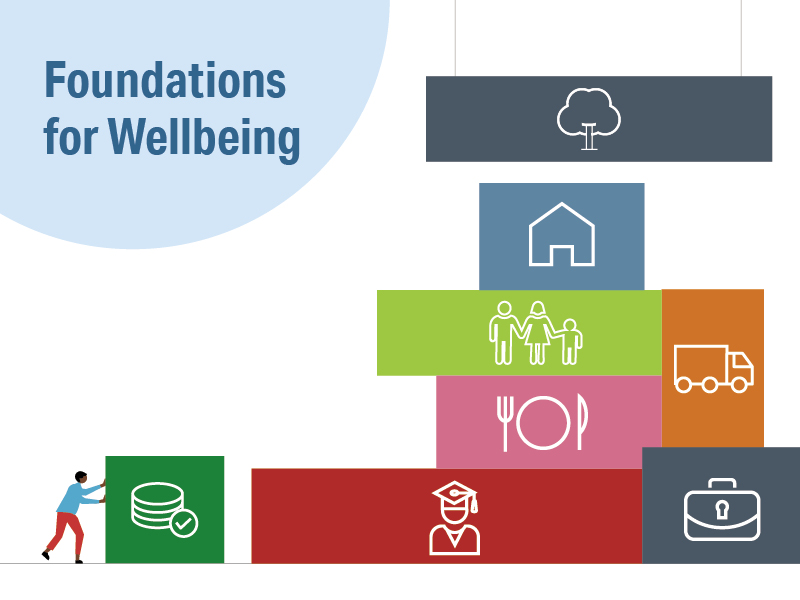Foundations for Wellbeing
Embedding health equity to reduce health inequalities across Lancashire.
Our shared vision for the future of Lancashire centres on creating a place where every single person can live their best life.
The Foundations for Wellbeing approach supports this vision by focussing specifically on tackling the inequalities in health that are present across Lancashire.
It means embedding health equity at the highest levels – into the policies and strategies that shape the way we work.
The approach aims to:
- Identify opportunities to improve health equity across Lancashire County Council and external partnerships
- Improve the effectiveness of policies, by building capability and capacity to address health inequalities
- Embed best practice within organisations, creating opportunities to enhance health for all
Health inequalities are avoidable, unfair, and systematic differences in health between different groups of people.
Compared to those living in our wealthiest areas, people living in our poorest areas:
- spend more of their lives living with a long-term health condition or disability
- die around 16 years earlier
We want to create a county where everyone can live their best life and where we can achieve our shared vision.
To do this, we need to ensure that all the right building blocks are in place:
- stable jobs
- good pay
- quality housing
- good education
- social connections
- access to transport
- good quality, healthy foods
- environments that promote health
These building blocks are also known as the wider determinants of health.
We all have a part to play in ensuring that our policies and strategies support everyone to achieve a happy, healthy, and meaningful life.
Right now, in a number of our communities, some blocks are missing or weak. Working collectively, we can make the building strong for everyone, ensuring that we don't leave anyone behind. To achieve this, we must pay close attention to health equity.
Health equity is achieved when everyone is able to attain their full potential for health and well-being.
Whilst Equality means giving everyone the same, or equal, opportunities, Equity means tailoring our policies and strategies so that every individual can enjoy the same outcome.
Whilst our policies or strategies often consider the Lancashire population as a whole, in embedding equity, we are giving special consideration to those communities at greatest disadvantage, where blocks may be missing or weak.

Equality assumes that everyone benefits equally from the same level of support.
For example, giving three people of different heights the same size box to stand on to pick an apple from a tree it would mean that some of them are still not able to reach high enough to pick the fruit.
Equity is about giving everyone the individual level support they need. This is the concept of "affirmative action". For example, giving three people of different heights appropriately sized boxes to stand on to pick an apple from a tree allows everyone to reach the fruit.
It is important that we consider health equity at all levels of our work. The elements of health equity considered within our policies and strategies ultimately feed into the services, facilities, and infrastructure being delivered on the ground.
On this practical level, the health equity screening tool supports us all to think about how our services, facilities, or infrastructure impact on inequalities.
For further support and guidance, please email: healthequity@lancashire.gov.uk
We have also put together some further information and resources to assist you in having conversations about health equity:
- Social value (PDF 54.9 KB)
- Health equity resources collection – Gov.UK
- How to talk about the building blocks of health - The Health Foundation
- Fair Society, Healthy Lives - The Marmot Review - The Institute of Health Equity
- Health Equity in England: The Marmot Review 10 years on – The Health Foundation
Feedback
To inform continued development of the Health Equity Screening Tool and the wider Foundations for Wellbeing approach, we would value your feedback.
